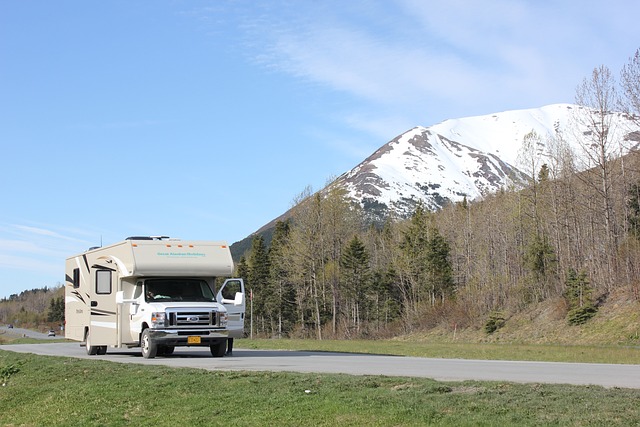Embarking on an RVing for Beginners journey demands careful planning and preparation to ensure a safe, comfortable, and enjoyable experience. Novice RVers should familiarize themselves with the intricacies of their vehicle, including its plumbing, electrical, propane, and appliance systems. A thorough inspection of the RV's exterior, particularly the tires and lighting systems, is necessary to detect any potential issues before departure. It's crucial to understand local laws that apply to RV travel to avoid legal complications on the road. Detailed route planning considering current road conditions and the availability of campground facilities is essential. Keep an accessible list of emergency contacts and critical information such as the RV's VIN number. Stock your RV with a well-equipped first-aid kit, fire extinguisher, and all necessary medications. Ensure that safety devices like carbon monoxide and smoke detectors are fully functional. Pack for varying weather conditions and be aware of proper ventilation practices to prevent gas buildup. Lastly, review your RV insurance policy to confirm comprehensive coverage for both the vehicle and its contents. By adhering to these steps, you'll be well-prepared for a successful and secure RVing for Beginners adventure.
Embarking on an RV journey offers unparalleled freedom and adventure, allowing travelers to explore the great outdoors at their own pace. However, ensuring a secure and enjoyable trip requires careful planning and attention to safety details. This comprehensive guide for RVing beginners covers essential preparations and safe driving practices to guarantee a smooth and stress-free experience. From regular vehicle maintenance to understanding the intricacies of your RV’s systems, from route planning to weather proofing, this article provides vital tips to help you navigate with confidence. Learn how to secure your belongings, stay informed on local laws, and build a supportive community as you embark on your next adventure in RVing for Beginners.
Essential Preparations Before Embarking on Your First RV Trip

Before setting out on your inaugural RV adventure, careful preparation is key to a safe and enjoyable journey. For those embarking on RVing for Beginners, it’s crucial to familiarize yourself with the vehicle’s systems and features. Take time to understand how the RV’s plumbing, electrical, propane, and appliances operate. Conduct a thorough walk-around inspection of your RV, checking tires for wear and ensuring all lights, brakes, and turn signals function properly. Familiarize yourself with local regulations regarding RV travel, including weight limits, parking restrictions, and campground rules. Plan your route in advance, considering road conditions and potential detours. Make a list of emergency contacts and important information, such as the RV’s VIN number, and store it where it’s easily accessible. Stock your RV with essential supplies, including a first-aid kit, fire extinguisher, and necessary medications. Ensure that all safety equipment, like carbon monoxide and smoke detectors, are working. Pack for various weather conditions, and understand how to properly ventilate your RV to prevent gas buildup. Lastly, review your insurance policy to confirm coverage for your RV and its contents. By taking these steps, you’ll be better prepared to face the open road confidently and securely on your RVing for Beginners journey.

Embarking on an RVing adventure can be a fulfilling and exciting experience, especially for beginners. To ensure your journey is both enjoyable and secure, it’s crucial to prioritize safety from the outset. One of the first considerations should be the maintenance and inspection of your RV. Regular checks on the vehicle’s systems, including the brakes, tires, battery, and propane tanks, can prevent potential malfunctions that could compromise safety on the road. Additionally, familiarize yourself with the operation of the RV’s systems, such as water and electrical supply, to mitigate risks associated with utility failures or emergencies.
When planning your route, consider well-maintained roads and RV-friendly campgrounds. These sites are designed with RVers in mind and often provide the necessary amenities and safety features for a restful night’s stay. Always keep emergency kits both in your RV and on your person, equipped with first aid supplies, fire extinguishers, and tools for minor repairs. Stay informed about weather conditions and have a plan in place for severe weather, which can be particularly unpredictable when traveling. By taking proactive safety measures and adapting to the unique aspects of RVing for Beginners, you can embark on your adventure with confidence and peace of mind.
Embarking on an RV journey offers a unique blend of adventure and comfort, but prioritizing safety is paramount. For those RVing for Beginners, the key to a secure travel experience lies in meticulous preparation. This includes regular vehicle maintenance, understanding local regulations, and having a well-crafted plan for navigation, camping, and emergencies. By adhering to the safety tips outlined in this guide, you can confidently explore the open road, ensuring your adventure is as enjoyable as it is secure. Safe travels to all RV enthusiasts!
